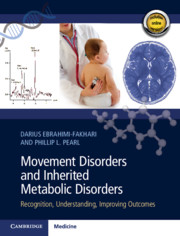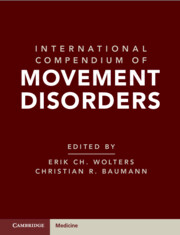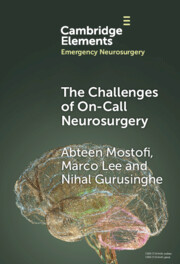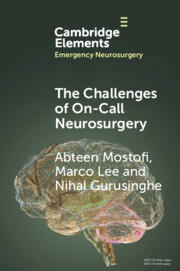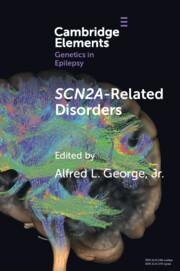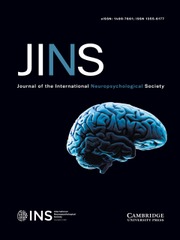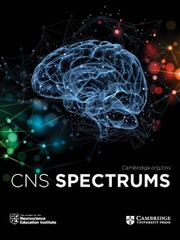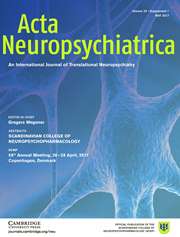Movement Disorders and Inherited Metabolic Disorders
Inherited metabolic movement disorders are a significant and rapidly evolving field of study, linking two subspecialty areas of childhood-onset movement disorders and inborn errors of metabolism. Increasing the chance of early recognition of inherited metabolic movement disorders can have significant therapeutic implications for patients. Containing information on new disorders of post-translational modification and autophagy and their identification and treatment, there is thorough coverage of disorders of amino acids, energy metabolism, and lysosomal storage, amongst others. This key resource explores future directions in the field including next-generation genetic sequencing and novel therapeutic approaches such as deep brain stimulation. Supplementary videos are available on Cambridge Core, accessible via the code printed inside the cover. This essential text bridges the gap in communication between experts in genetic-metabolic medicine and movement disorder neurology. With an emphasis on treatable conditions that should not be missed, this volume guides you through various disorders from a clinical, biochemical and genetic perspective.
- Brings together experts in genetic-metabolic medicine and movement disorder neurology, providing a complete understanding of the clinical, biochemical and genetic basis of the disorders
- Gain full HTML access of the whole book, with expandable videos, figures and resources, via a scratch-off code inside the cover
- In a rapidly expanding field, the book explores newly discovered disorders as well as more recognised diseases
- Covers future directions in the field such as new technology to diagnose disorders and novel therapeutic approaches
- Highly experienced contributors from around the world bring a wealth of understanding and knowledge together in one source
- A readable and well-illustrated reference for clinicians and scientists
Product details
October 2020Print/online bundle
9781108556743
440 pages
251 × 195 × 25 mm
1.084kg
Available
Table of Contents
- Section I. General Principles and a Phenomenology-Based Approach to Movement Disorders and Inherited Metabolic Disorders:
- 1. Treatable Metabolic Movement Disorders: the Top 10
- 2. The Importance of Movement Disorders in Inborn Errors of Metabolism
- 3. The Importance of Inborn Errors of Metabolism for Movement Disorders
- 4. Imaging in Metabolic Movement Disorders
- 5. Biochemical Testing for Metabolic Movement Disorders
- 6. Genetic Testing for Metabolic Movement Disorders
- 7. A Phenomenology-Based approach to inborn errors of metabolism with Ataxia
- 8. A Phenomenology-Based Approach to Inborn Errors of Metabolism with Dystonia
- 9. A Phenomenology-Based Approach to Inborn Errors of Metabolism with Parkinsonism
- 10. A Phenomenology-Based Approach to Inborn Errors of Metabolism with Spasticity
- 11. A Phenomenology-Based Approach to Inborn Errors of Metabolism with Myoclonus
- Section II. A Metabolism-Based Approach to Movement Disorders and Inherited Metabolic Disorders:
- 12. Disorders of Amino Acid Metabolism: Amino Acid Disorders, Organic Acidurias, and Urea Cycle Disorders with Movement Disorders
- 13. Disorders of Energy Metabolism: Glut1 Deficiency Syndrome and Movement Disorders
- 14. Lysosomal Storage Disorders: Niemann-Pick Disease Type C and Movement Disorders
- 15. Lysosomal Storage Disorders: Neuronal Ceroid Lipofuscinoses and Movement Disorders
- 16. Syndromes of Neurodegeneration with Brain Iron Accumulation
- 17. Metal Storage Disorders: Inherited Disorders of Copper and Manganese Metabolism and Movement Disorders
- 18. Metal Storage Disorders: Primary Familial brain Calcification and Movement Disorders
- 19. Disorders of Glycosylation and Movement Disorders
- 20. Disorders of Post-translational Modifications / Degradation: Disorders of Autophagy and Movement Disorders
- 21. Neurotransmitter Disorders: Disorders of Dopamine Metabolism and Movement Disorders
- 22. Disorders of GABA Metabolism and Movement Disorders
- 23. DNAJC12-deficient Hyperphenylalaninemia – An Emerging Neurotransmitter Disorder
- 24. Vitamin-Responsive Disorders: Ataxia with Vitamin E Deficiency and Movement Disorders
- 25. Vitamin-Responsive Disorders: Biotin-Thiamin Responsive Basal Ganglia Disease and Movement Disorders
- 26. Disorders of Cholesterol Metabolism: Cerebrotendinous Xanthomatosis and Movement Disorders
- 27. Purine Metabolism Defects: the Movement Disorder of Lesch-Nyhan Disease
- 28. Disorders of Creatine Metabolism: Creatine Deficiency Syndromes and Movement Disorders
- 29. Hereditary Spastic Paraplegia Related Inborn Errors of Metabolism
- Section III. Conclusions and Future Directions:
- 30. Metabolic Movement Disorders in the Era of Next-Generation Sequencing
- 31. Deep Brain Stimulation for Metabolic Movement Disorders
- 32. Novel Therapeutic Approaches to Metabolic Movement Disorders
- Closing Remarks: A Clinical approach to Inherited Metabolic Movement Disorders.

